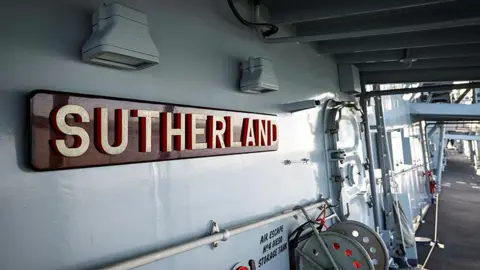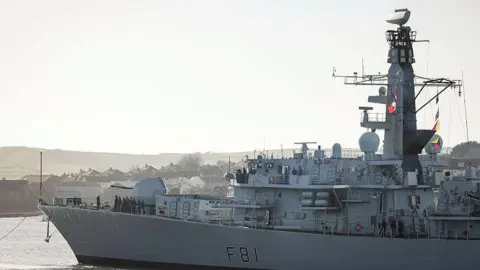HMS Sutherland returns to sea after major refit
 Royal Navy
Royal NavyA Plymouth-based frigate has returned to sea following a four-year long overhaul at Devonport Dockyard.
The Royal Navy said HMS Sutherland was the final Type 23 frigate to receive the life extension upgrades by defence company Babcock, allowing it to continue service into the mid-2030s.
It said Sutherland sailed from Devonport to begin sea trials and training ahead of re-joining the Royal Navy fleet and serving on operations around the globe including submarine hunting missions in the north Atlantic.
Commanding officer of the ship James Wallington-Smith said the Sutherland benefitted from "modernisation and extension of key weapons, sensors, and equipment".
 Royal Navy
Royal Navy"This accomplishment is down to the hard graft and considerable efforts of both the ship's company and Babcock working closely together to deliver success," said Cdr Wallington-Smith.
"The ship and her crew are now ready to continue the next stage of trials and training in the return to operations."
The navy said it was also the last ship in her class to receive the Sea Ceptor missile system, which has now been proven in action after HMS Richmond downed drones in the Gulf last year.
Prior to her return to sea, the navy said Babcock handed over the ship in a "small ceremony onboard" before she continued down the River Tamar into Plymouth Sound.
Sir Nick Hine, chief executive of Babcock's marine sector, said after a significant upkeep programme, it was "fantastic to see HMS Sutherland starting sea trials".
He added: "Our team has provided trusted expertise, utilising our long-standing through-life support experience to ready the ship before she recommences her journey to support the nation's defence.
"We are proud to support these important naval assets and to work alongside our MoD and Royal Navy colleagues."
